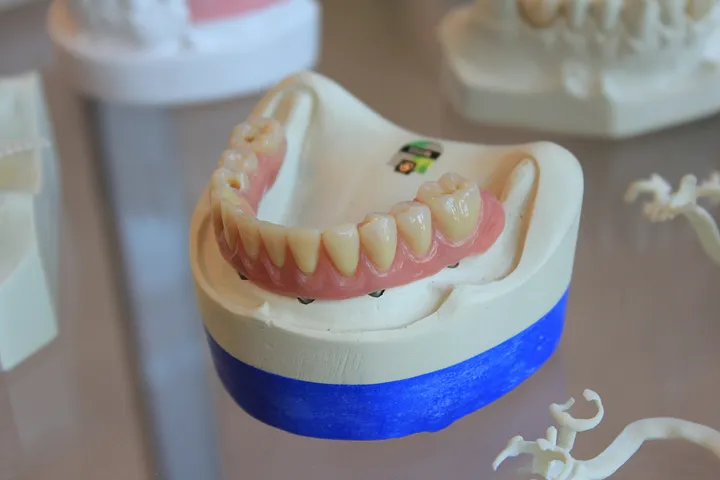Visiting the dentist is an essential part of maintaining good oral health. However, many patients experience discomfort or pain after their appointments. This article explores the reasons behind post-dental visit pain, what is considered normal, and when to seek help from your dentist.
Understanding Dental Procedures
Dentists perform a variety of procedures, from routine cleanings to more invasive surgeries. Each type of procedure can produce different levels of discomfort. Common dental visits may include:
- Routine Cleanings: These are typically low-risk and involve scaling and polishing the teeth. Some patients may experience minor discomfort due to plaque removal, especially if they haven’t been to the dentist in a while.
- Fillings: If a cavity is filled, patients might feel pain during the procedure due to the anesthetic injections or the drilling process. Afterward, some sensitivity can occur.
- Root Canals: This procedure is known for being more painful. Dentists perform root canals to treat infected teeth, and while anesthesia helps during the procedure, patients may experience pain post-appointment as the tissue heals.
- Extractions: Tooth extractions can cause significant pain afterward. The level of pain depends on the tooth’s location and whether it was impacted or erupted.
- Gum Treatments: Procedures for gum disease can also cause discomfort. Scaling and root planing, for example, can lead to soreness for a few days.
Each procedure has its own recovery expectations, and understanding these can help patients gauge what level of pain is normal.
Common Causes of Pain After a Dentist Visit
Several factors can contribute to post-dental visit pain. These include:
1. Anesthesia Effects
Many dental procedures require local anesthesia to numb the area being treated. After the effects wear off, patients may experience pain or discomfort as the numbing subsides. This sensation is usually temporary but can be bothersome.
2. Tissue Irritation
Dental work often involves manipulating the soft tissues of the mouth. This can cause temporary irritation or inflammation, leading to pain after the procedure. For instance, scaling can irritate the gums, resulting in tenderness.
3. Sensitivity
Many patients report increased sensitivity in their teeth after dental work. This is particularly common after cleanings, fillings, or whitening procedures. The sensitivity is usually temporary but can make eating or drinking uncomfortable.
4. Underlying Conditions
If a patient has underlying dental issues, such as gum disease or tooth decay, they may experience more pain following dental procedures. These conditions can exacerbate discomfort and prolong recovery time.
5. Stress and Anxiety
Dental anxiety can heighten the perception of pain. Patients who are nervous about their visit may tense up during the procedure, leading to muscle soreness and discomfort afterward.
How Long Should Pain Last?
The duration of pain after a dentist visit can vary widely based on the procedure and individual factors. Here are some general timelines:
- Routine Cleanings: Discomfort typically lasts a few hours to a day. Any significant pain should be reported to the dentist.
- Fillings: Sensitivity may persist for a few days. If pain lasts longer or worsens, it could indicate a problem with the filling.
- Root Canals: Pain can last for several days, and it’s normal to feel some discomfort. If the pain is severe or persistent, a follow-up visit is necessary.
- Extractions: Pain may peak two to three days after the extraction, as this is when the healing process is most active. Persistent pain should be evaluated by the dentist.
- Gum Treatments: Soreness can last a few days, but should gradually improve. If symptoms worsen, it’s essential to contact the dentist.
Post-Procedure Pain Management
Patients can take several steps to manage pain after a dental visit. These include:
- Over-the-Counter Pain Relievers: Non-prescription medications like ibuprofen or acetaminophen can help alleviate pain and reduce inflammation.
- Cold Compress: Applying a cold compress to the outside of the mouth can help reduce swelling and numb the area.
- Salt Water Rinses: Rinsing with warm salt water can soothe irritated tissues and promote healing.
- Avoiding Hard Foods: For a few days after the appointment, it may be best to stick to soft foods to prevent aggravating sensitive areas.
- Following Dentist’s Instructions: Dentists often provide specific aftercare instructions. Adhering to these can facilitate quicker recovery and minimize pain.
When to Call Your Dentist
While some discomfort is normal after a dental visit, certain symptoms should prompt a call to your dentist:
- Severe Pain: If the pain is more than mild and does not improve with over-the-counter medications, contact your dentist.
- Swelling: Significant swelling around the treated area can indicate infection or complications.
- Fever: A fever following dental work can signal an infection that requires prompt treatment.
- Persistent Symptoms: If pain or sensitivity lasts beyond the expected timeframe for your procedure, it’s crucial to reach out for advice.
- Unusual Symptoms: Any unusual symptoms, such as pus discharge or a bad taste in the mouth, warrant immediate dental attention.
Conclusion
Experiencing pain after a dentist visit can be normal, depending on the type of procedure performed and individual pain thresholds. Understanding what to expect can alleviate anxiety and help patients manage post-visit discomfort. It’s essential to distinguish between normal pain and symptoms that require further attention. Always follow your dentist’s aftercare instructions and don’t hesitate to reach out if you have concerns. Remember, good communication with your dentist can enhance your dental experience and ensure that your oral health is in top shape.
